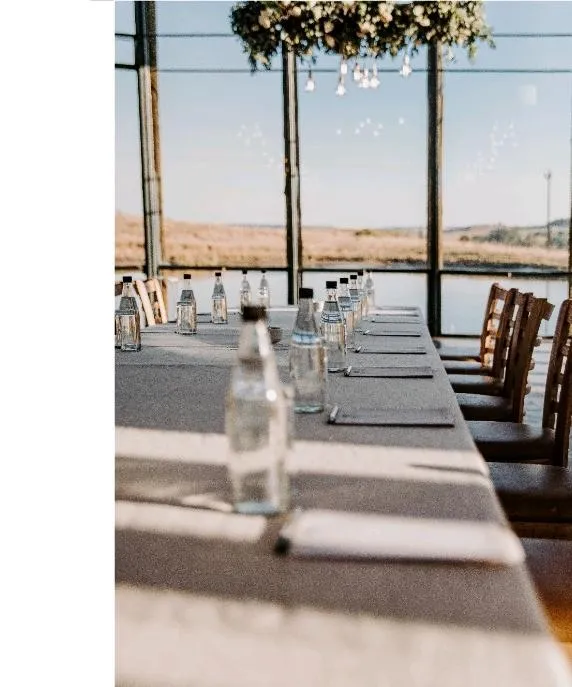Mastering the art of crisis management in event planning

In event planning, even the most perfectly laid out plans can go awry at times.
Image: Supplied
The world of event planning is fraught with unforeseen challenges. From sudden technical failures to speaker no-shows, crises can emerge in various forms, leaving organisers scrambling for solutions.
Yet, as industry expert Onwaba Gonyora, director at the prestigious Brahman Hills (KwaZulu-Natal Midlands), articulates, the best events are defined less by their perfection and more by how they adapt and respond to the unexpected.
“Things won’t always go according to plan, but it’s how you respond that defines the experience,” Gonyora reflects, drawing on her decades-long career in organising everything from corporate conferences to lavish weddings.
“The best conferences aren’t perfect; they’re personal, adaptable, and anchored in purpose. That’s what people remember.”
Given the high stakes involved in conference planning, what strategies can organisers employ to ensure their events run smoothly, despite inevitable hiccups? Gonyora offers valuable insights focused on bolstering preparation, selecting the right partners, and honing adaptability.
1. Plan for the Unplanned
Every solid event plan should start with a contingency session dedicated to identifying potential pitfalls.
Whether it’s a power outage or a last-minute cancellation, having backup measures—such as extra routers, printed agendas, and contingency speakers—ensures that you’re never caught off guard.
2. Choose Solution-Oriented Partners
The quality of your partnerships can greatly influence the smoothness of your event. Selecting vendors and venues that prioritise solutions over problems can make all the difference.
At Brahman Hills, the ethos of “Where You're Everything” thrives, reflecting a commitment to navigating challenges with grace. A calm, resourceful team will focus on finding workarounds rather than offering excuses.
3. Multiple Spaces Give You Options
When problems arise, having a range of adaptable spaces at your venue is a major advantage. A facility with multiple rooms and diverse layouts enables planners to pivot quickly in response to unexpected disruptions.
Brahman Hills, for example, provides an array of options including expansive gardens for outdoor sessions and fully equipped conference venues, giving planners the peace of mind that comes with flexibility.
4. Rehearse the Response
While rehearsing the programme is essential, it’s equally important to plan responses to potential disruptions.
By defining roles in advance—who will relocate guests, who will handle communications, and who liaises with the venue—you eliminate chaos during the actual event.
5. Guest Experience Comes First
No matter the severity of an issue, the focus should always remain on how guests feel throughout the event.
A well-managed disruption can become a highlight, with thoughtful communication and a seamless recovery creating memorable moments. Gonyora emphasises the importance of prioritising guest experience, noting that excellent service can turn challenges into opportunities for brand loyalty.
6. Flexible Design, Not Last-Minute Scrambling
Embedding flexibility into your event design from the outset is crucial. Avoid rigid structures that could leave you scrambling at the last minute.
Timelines, room setups, and session formats should all allow for adaptability.
In venues like Brahman Hills, flexibility is embedded into the experience, highlighting the importance of effective planning over reactive scrambling.
As Gonyora poignantly states, “In events and conferencing, perfection is rare, but with preparation, professionalism, the right partners, and mindset, you don’t have to just survive curved balls. You use them to create a positive impression and build a reputation for delivering excellence, no matter what.”
DAILY NEWS
Related Topics: